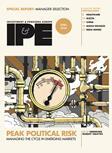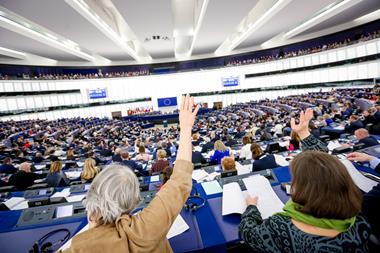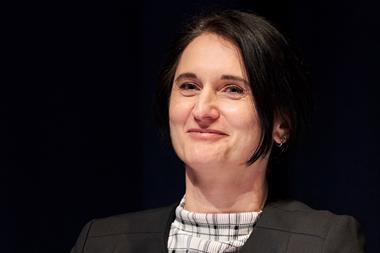Europe – Internal market Commissioner Frits Bolkestein has issued his hotly anticipated response to the issue of taxation within the context of the European directive on occupational pensions.
And as expected, Bolkestein has chosen the milder ‘communication’ route as opposed to the pursuit of a full-blown directive for fiscal harmonisation.
Explaining its reasoning, the Commission says it believes bringing a communication represents the best way to apply freedom of movement rules that already exist on a non-discriminatory basis in the Treaty of Rome.
The treaty, says the Commission, obliges member states to eliminate discrimination against pension institutions established in other member states.
That said, Bolkestein’s proposals do not lack teeth.
A clear warning is issued to member states that they will be taken to the European Court of Justice if they do not comply with the EC treaty.
In the EC’s words a “co-ordinated approach” to pensions taxation adapted to the diversity of member states rules is being sought, rather than a difficult attempt to achieve harmonisation.
A full-blown directive, the Commission adds, would at best do no more than reiterate treaty rights and at worst make unconditional treaty rights “hostage” to the political process.
As a result of the unanimity rule in Europe on taxation questions, the Commission says it is unlikely that the Council of Europe would agree on anything but the most limited measures, concerning, say, taxation of short term postings of employees abroad.
“ A directive limited to posted workers would go much less far than the requirements of the treaty itself,” the Commission says.
What the Commission’s proposals dictate is the principle that workers belonging to a scheme approved for tax purposes in their home state who then move to another member state cannot be refused tax reductions on contributions on the grounds that the scheme does not meet the conditions for tax approval in the new state.
Consequently, national rules denying equal treatment to pension schemes operated by pension institutions established in other member states will be seen as being in breach of the EC Treaty and legal action may be taken by the Commission.
As Bolkestein, comments: “ This initiative presents comprehensive solutions to deal with the many existing tax obstacles to the cross border provision of occupational pensions.
“ A fully functioning internal market for occupational pensions is essential to ensure that citizens are able to exercise their rights to free movement.”
To his credit Bolkestein has looked backward to move things forward.
Leaning on the workings of an existing directive - 1977’s Mutual Assistance Directive; an exchange of information framework between member states for tax on savings, Bolkestein points out that the same structure can apply for pensions taxation.
Under the Commission’s proposals information on benefits paid by pension institutions to residents of another member state would automatically be exchanged to the new host state to allow it to verify compliance by residents with its own tax regulations.
The Commission says the existing committee for automatic information exchange under the 1977 directive will look into the details of what needs to be provided for such a system to work.
Minimum information expected, however, would include personal details, details of the pension institution or pension provider, policy number, date of pension entitlement and total annual payments by employer and employee, and by the provider and their nature (periodic or lump sum).
The Commission adds that it may be that the information will be exchanged by member states having been collected from institutions, or directly from institutions to member states.
At a later stage it says it may also consider information exchanges for third pillar pension plans, including life insurance arrangements.
The Commission has also called for member states to look closely at moving to a harmonised EET (exempt contributions, exempt capital gains, taxed benefits) system for pensions taxation, saying that it would “broadly welcome” its greater acceptance amongst member states.
Addressing the issue of ‘double taxation’, whereby employees moving across EU borders can either be taxed twice or not at all on their pensions, depending on the different pensions taxation systems applied, -whether they be EET, TEE or ETT, the Commission notes that 11 member states already employ the EET system, while Denmark, Sweden and Italy use the ETT system and Germany and Luxembourg have the TEE system.
The Commission adds: “ Moreover, by providing for a tax deferral on the contributions paid, the EET system encourages the making of retirement provision. The EET system also helps to cope with demographic ageing as it reduces revenues today in exchange for higher tax revenues at the time when the demographic dependency ratio will be much more unfavourable.”
Nonetheless, the EC also notes that a broad acceptance of the EET principle in itself would not lead to homogeneity, noting the significant differences existing between EET type member states in how far they deduct tax from contributions.
The Commission also suggests a number of practical measures to overcome the problem of double taxation for an employee starting their career in a TEE state and finishing it in an EET state.
The communication notes that some states such as Denmark and Sweden have already moved to eliminate this problem by exempting benefits paid by foreign pension institutions to their residents, to the extent that the contributions were not deductible.
Double tax treaties – where if a worker from at TEE state retired to an EET state the latter would not tax his pension - just as it would have been exempt in the state of origin, are another solution to the problem, the Commission adds.












No comments yet